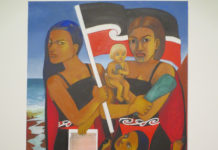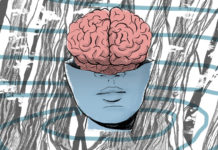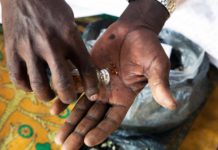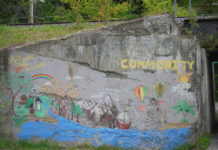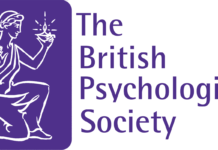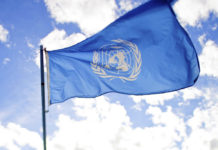Why Social Isolation Leads to Inflammation
We are wired for community. If we disconnect, our bodies will call us back to the sense of human connection that we are wired for, using the unexpected language of inflammation.
Talk Therapy Can Cause Harm, Too
The Association for Psychological Science (APS) was founded twenty years ago by psychologists and neuroscientists who were dismayed by trends in the American Psychological Association (APA). The APA had lost its old single-minded focus on the search for empirically based answers to psychological questions. This may have followed from the fact that the APA’s membership encompassed an ever-larger percentage of practicing psychologists with many immediate, practical concerns. Yet it is these very clinicians who are in such dire need of empirically validated procedures. It might be time to summarize newer empirical literature that challenges the assumption that the mere expression of emotion is helpful.
Study Explores Māori Community’s Multifaceted Understanding of “Psychosis”
A new study explores how “psychosis” and “schizophrenia” are viewed within the Māori community in New Zealand.
Non-Pharmacological Interventions More Effective For Health in Schizophrenia
Review compares the effectiveness of pharmacological and non-pharmacological interventions for improving physical health outcomes in people diagnosed with schizophrenia.
Correcting Misconceptions of Trauma-informed Care with Survivor Perspectives
Trauma-informed approaches have the potential to promote recovery but must involve survivors and service-users to prevent the experience of retraumatization within psychiatric and mental health services.
We Are Meant to Heal in a Community
In my last blog, I talked about how I was attempting to cope with a “mini-relapse” without using psychiatric drugs. One Sunday morning in the midst of this episode I awoke in a particularly dismal state. I didn’t have a structure planned for the day. And without something to look forward to, both my anxiety and depression increased.
Integrating Indigenous Healing Practices and Psychotherapy for Global Mental Health
As the Global Mental Health Movement attempts to address cross-cultural mental health disparities, a new article encourages integrating traditional healing practices with psychotherapy.
First-Person Accounts of Madness and Global Mental Health: An Interview with Dr. Gail Hornstein
Dr. Gail Hornstein, author of Agnes’s Jacket: A Psychologist’s Search for the Meanings of Madness, discusses the importance of personal narratives and service-user activism in the context of the global mental health movement.
How to Promote Community Inclusion in Mental Health Practice
Practitioners and public leaders identify methods and barriers for integrating those diagnosed with mental health issues into community life.
The History and Effectiveness of Peer Support from 18th-Century France to Today
Yale's Program for Recovery and Community Health will publish in World Psychiatry's June issue a review the history of peer support, from its roots...
From Compliance to Activism: A Mother’s Journey
Through years of turmoil and confusion, Cindi Fisher’s enduring love for her involuntarily committed son gradually changed her from compliant mom to mental health civil rights activist. That’s when authorities banned her from even contacting her son. But could she be a bellwether of a coming nation-wide wave of protestors?
“New Course on ‘Making Sense’ of Trauma, Creating a Coherent Narrative”
PsychAlive is releasing a new blog and e-course on “Making Sense of Your Life,” with psychologists Lisa Firestone and Dan Siegel. They draw upon the...
Why We Need Mental Health Social Entrepreneurship
A mental health social entrepreneurship is a business that uses market principles to maximize benefit instead of maximizing profit. For instance, my business, Wellness...
Two-Thirds of Schizophrenia Patients Do Not Remit on Antipsychotics
A new analysis of antipsychotic treatment of schizophrenia (published in Schizophrenia Bulletin) has found that two-thirds of patients treated this way do not experience symptom remission.
Alternative Therapies for Adolescent Depression as Effective as CBT, Study Finds
Brief psychodynamic and psychosocial interventions help maintain reduced depressive symptoms
Inner Fire: Healing and Recovery Without Meds
For five years, I and others worked to create a residential healing community in Brookline, Vermont, where people could recover from debilitating and traumatic life experiences, which often lead to addiction and mental health challenges, without the use of psychotropic medications. We welcomed our first six seekers to a yearlong, therapeutic and farm-based, day program last September, and we now can report on what we have learned during this time.
Researchers Call for Transparency About Limits of Psychiatric Knowledge
A new paper explores how the disputed nature of psychiatric knowledge influences public perceptions and debates within the field of mental health.
Psychiatric Diagnosis Can Lead to Epistemic Injustice, Researchers Claim
A discussion of the role of epistemic injustice in the experiences of patients diagnosed with psychiatric disorders.
Psychologists Push For New Approaches to Psychosis: Part 1
Psychologists and people with experience of psychotic symptoms publish a report on new ways of understanding psychosis.
I Navigated the Mental Health System and Never Took Medications
I kept thinking, why was I the one to be labeled when my husband was doing all this unhealthy, violent stuff? I sought out doctors through health food stores and communities that didn’t believe in medications for a social and family problem. That way no controlling, pill-pushing medical doctor had authority over me.
Responding to Madness With Loving Receptivity: a Practical Guide
In my last three blogs I posed the question- "If madness isn't what psychiatry says it is, then what is it?" Now I'm asking-...
United Nations Rep Brings Attention to Human Rights Violations in Psychiatry
Dr. Dainius Pūras argues that the status quo in mental health treatment is no longer acceptable and demands political action to promote human rights.
What Would a Trauma-Informed Society Look Like?
Imagine if we, as a society, started recognizing trauma, pain, grief, fear, the need for connection and understanding, and oppression without defensiveness or denial. What if, hypothetically, we saw the signs in people who were "defiant," "withdrawn," "oppositional," "depressed," "manic," or otherwise as desperate pleas to have their needs met, and stopped telling them they were sick for doing so? What would a society that actually encouraged expression of emotion, compassion, and empathy look like?
Study Shows Success With Reduced Antipsychotic Use
People who reduced antipsychotic use by tapering were doing just as well after five years as those who continued using the drugs.
Peer Support in Mental Health: Exploitive, Transformative, or Both?
The first time I tried to write about peer support—that emerging form of “service delivery” in which one person in recovery from what is described in the field as a “serious mental illness” offers support to another person who is in distress or struggling with a mental health condition—was in 1994. The manuscript was summarily rejected from an academic journal as representing what one of the reviewers described as “unsubstantiated rot.” That same article was eventually published 5 years later, and used by the President’s New Freedom Commission on Mental Health to support its recommendation that peer supports be implemented across the country. Now, more than a decade later and as peer support arrives at something of a crossroads, both of these reactions remain instructive.



